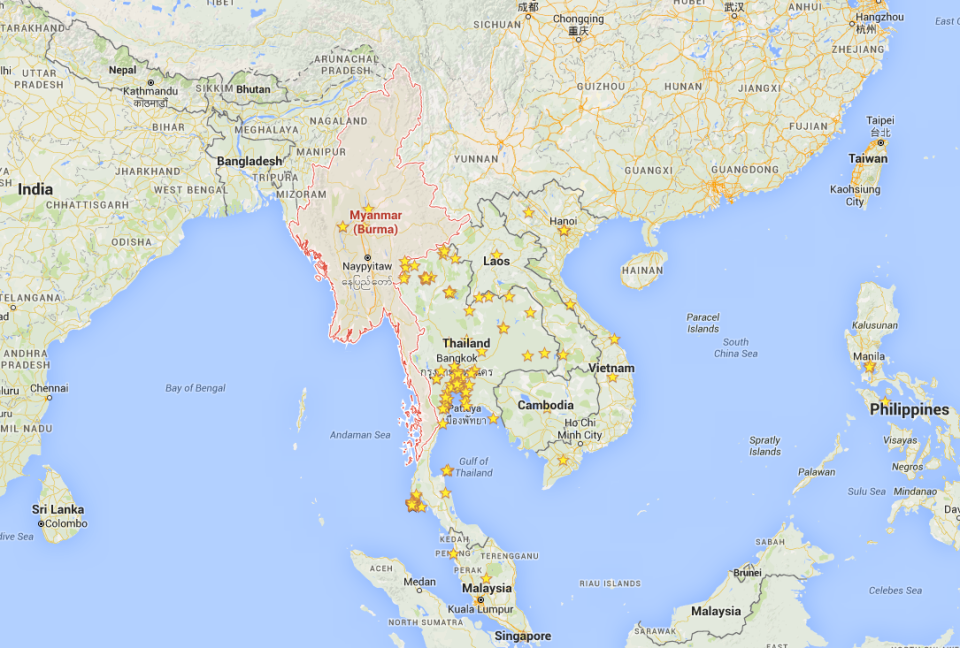
Language:
Select
What is the current situation?
Travelers have returned from certain areas of Southeast Asia with Zika virus infection. While our understanding of the complications of Zika virus infection continues to evolve, and pending broader international surveillance efforts for Zika virus infection, we are providing pregnant women and their partners updated recommendations on reducing their risk for travel related Zika virus infection. CDC recommends pregnant women should consider postponing nonessential travel to Southeast Asia countries with reports of Zika virus infection from local transmission or related to travel to those countries, and those countries with adjacent borders where limited information is available to fully evaluate risk of Zika virus infection.
Travel Considerations for Pregnant Women Traveling to Southeast Asia
Zika virus infection during pregnancy causes severe birth defects, including microcephaly and severe fetal brain abnormalities. Therefore, pregnant women should talk with their healthcare provider and consider postponing nonessential travel to Southeast Asia. Zika virus testing should be offered to pregnant women and considered for other people who have symptoms of Zika virus disease if they have recently traveled to Southeast Asia.
Zika virus has been present in areas of Southeast Asia for many years, and several countries have reported occasional cases or small outbreaks of Zika virus infections. Zika virus is considered endemic in some countries, and a large number of local residents are likely to be immune. However, US travelers to endemic areas may not be immune to Zika virus and infections have occurred among travelers to Southeast Asia. Recent variations have been observed in the number of cases reported in Southeast Asia. This can reflect changes in awareness of Zika virus, surveillance and testing for Zika virus, or changes in intensity of Zika virus transmission. Pregnant women traveling to Southeast Asia could become infected with Zika virus. The level of this risk is unknown and likely lower than in areas where Zika virus is newly introduced and spreading widely.
Countries included in this travel message include those listed below. For country-specific information, please visit Health Information for Travelers for individual countries:
What can travelers do to prevent Zika?
There is no vaccine or medicine for Zika virus infection. Travelers can protect themselves by preventing mosquito bites:
- Cover exposed skin by wearing long-sleeved shirts and long pants.
- Use EPA-registered insect repellents containing DEET, picaridin, oil of lemon eucalyptus (OLE, also called para-menthane-diol [PMD]), or IR3535. Always use as directed.
- Pregnant and breastfeeding women can use all EPA-registered insect repellents, including DEET, according to the product label.
- Most repellents, including DEET, can be used on children older than 2 months. (OLE should not be used on children younger than 3 years.)
- Use permethrin-treated clothing and gear (such as boots, pants, socks, and tents). You can buy pre-treated clothing and gear or treat them yourself.
- Stay in places with air conditioning and window and door screens to keep mosquitoes outside.
- Sleep under a mosquito bed net if air conditioned or screened rooms are not available or if sleeping outdoors.
- Mosquito netting can be used to cover babies younger than 2 months old in carriers, strollers, or cribs to protect them from mosquito bites.
Zika virus can be passed through sex from a person who has Zika virus to his or her sex partners. The use of condoms during sex (vaginal, anal, and oral) or abstaining from sex while traveling to these areas and after returning from these areas is recommended to avoid getting or passing Zika virus infection.
After travel:
Many people infected with Zika virus do not feel sick. If a mosquito bites an infected person while the virus is still in that person’s blood, it can spread the virus by biting another person. Even if they do not feel sick, travelers returning to the United States from countries where Zika virus is endemic should take steps to prevent mosquito bites for 3 weeks so that they do not spread Zika virus to uninfected mosquitoes.
Travelers returning from countries where Zika virus is endemic and who have a pregnant partner should either use condoms or not have sex for the rest of the pregnancy.
For more information, see Zika and Sexual Transmission.
If you feel sick and think you may have Zika virus:
- Talk to your doctor if you develop a fever with a rash, joint pain, or red eyes. Tell him or her about your travel.
- Take acetaminophen (paracetamol) to relieve fever and pain. Do not take aspirin, products containing aspirin, or other nonsteroidal anti-inflammatory drugs, such as ibuprofen.
- Get lots of rest and drink plenty of liquids.
If you are pregnant:
Talk to a doctor or other healthcare provider after your trip, even if you don’t feel sick. Pregnant women who have symptoms and have traveled to these countries should be offered testing for Zika virus infection. Pregnant women who have symptoms and who have had a possible sexual exposure during pregnancy to a partner who traveled to these countries should be offered testing for Zika virus infection.
- If you develop a fever with a rash, joint pain, or red eyes, talk to your doctor immediately and tell him or her about your travel or possible sexual exposure.
Clinician Information
Zika virus during pregnancy causes severe birth defects, including microcephaly and severe fetal brain abnormalities. All pregnant women should be evaluated for possible Zika virus exposure and signs or symptoms consistent with Zika virus disease at each prenatal care visit.
Possible exposures include
- Travel to an area where there is epidemic or endemic Zika virus transmission
- Sex with a partner who has traveled to or lived in an area with epidemic or endemic Zika virus transmission
The recommendations for testing vary according to whether exposure occurred in an area where Zika virus has been newly introduced and is spreading widely or in an area with endemic Zika virus transmission. Dengue and Japanese encephalitis viruses circulate widely in Southeast Asia and might cause false positive results in blood tests. Because of this and related testing factors, routine serologic testing of asymptomatic pregnant women who have traveled to areas of Southeast Asia without epidemic Zika virus transmission is not recommended. For more information, please visit the Clinical Guidance for Healthcare Providers Caring for Pregnant Womenwebpage.
Clinical Guidance for Healthcare Providers Caring for Infants & Children is also available.
Additional Resources
For Travelers:
For Clinicians:
- Page created: September 29, 2016
- Page last updated: September 29, 2016
- Page last reviewed: September 29, 2016
- Content source:
National Center for Emerging and Zoonotic Infectious Diseases (NCEZID)
Division of Global Migration and Quarantine (DGMQ)
TOP
Like this:
Like Loading...














